Three Husbands may refer to:
- Three Husbands (1951 film), an American comedy film
- Three Husbands (2018 film), a Hong Kong film
Three Husbands may refer to:
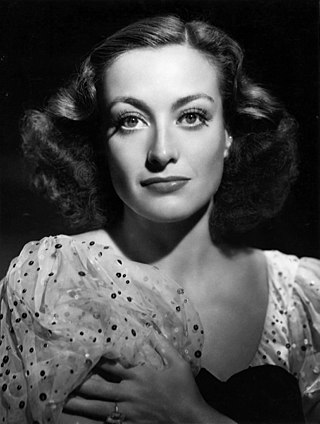
Joan Crawford was an American actress. She started her career as a dancer in traveling theatrical companies before debuting on Broadway. Crawford was signed to a motion picture contract by Metro-Goldwyn-Mayer in 1925. Initially frustrated by the size and quality of her parts, Crawford launched a publicity campaign and built an image as a nationally known flapper by the end of the 1920s. By the 1930s, Crawford's fame rivaled MGM colleagues Norma Shearer and Greta Garbo. Crawford often played hardworking young women who find romance and financial success. These "rags-to-riches" stories were well received by Depression-era audiences and were popular with women. Crawford became one of Hollywood's most prominent movie stars and one of the highest paid women in the United States, but her films began losing money. By the end of the 1930s, she was labeled "box office poison".
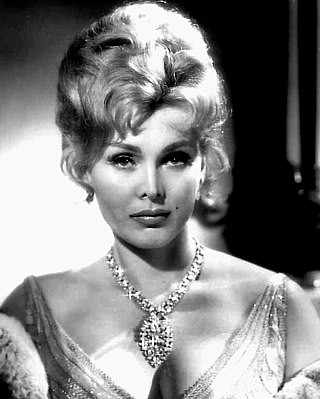
Zsa Zsa Gabor was a Hungarian-American socialite and actress. Her sisters were socialites and actresses Eva Gabor and Magda Gabor.

Three Colours: Blue is a 1993 psychological drama film co-written and directed by Polish filmmaker Krzysztof Kieślowski. It is the first instalment in the Three Colours trilogy, themed on the French Revolutionary ideals of liberty, equality and fraternity, followed by White and Red. According to Kieślowski, the subject of the film is liberty, specifically emotional liberty, rather than its social or political meaning.
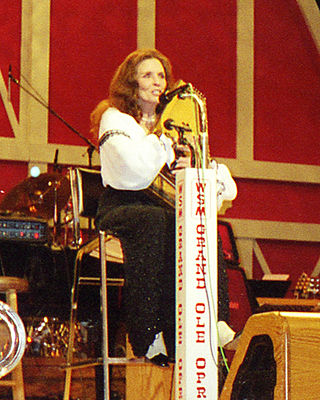
Valerie June Carter Cash was an American country singer and songwriter. A five-time Grammy award-winner, she was a member of the Carter Family and the second wife of singer Johnny Cash. Prior to her marriage to Cash, she was known as June Carter and continued to be credited as such even after her marriage. She played guitar, banjo, harmonica, and autoharp, and acted in several films and television shows. Carter Cash was inducted into the Christian Music Hall of Fame in 2009.

John Nicholas Cassavetes was a Greek-American filmmaker and actor. He began as an actor in film and television before helping to pioneer modern American independent cinema as a writer and director, often self-financing, producing, and distributing his own films. He received nominations for three Academy Awards, two BAFTA Awards, four Golden Globe Awards, and an Emmy Award.
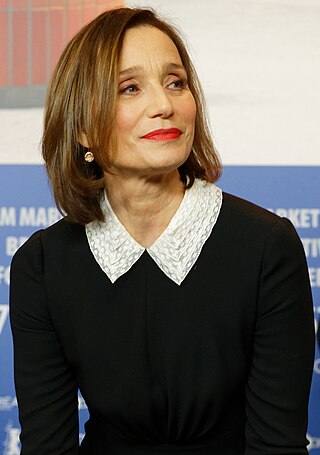
Dame Kristin Ann Scott Thomas is a British actress. A five-time BAFTA Award and Olivier Award nominee, she won the BAFTA Award for Best Actress in a Supporting Role for Four Weddings and a Funeral (1994) and the Olivier Award for Best Actress in 2008 for the Royal Court revival of The Seagull. She was nominated for the Academy Award for Best Actress in The English Patient (1996).

Julie Bowen is an American actress. She is best known for starring as Claire Dunphy in the ABC sitcom Modern Family (2009–2020), for which she received widespread critical acclaim. She won the Primetime Emmy Award for Outstanding Supporting Actress in a Comedy Series in 2011 and 2012.

Jennifer Mary Elfman is an US actress. She is best known for her leading role as Dharma on the ABC sitcom Dharma & Greg (1997–2002), for which she received the Golden Globe Award for Best Actress – Television Series Musical or Comedy in 1999, and three nominations for the Primetime Emmy Award for Outstanding Lead Actress in a Comedy Series. After making her film debut in Grosse Pointe Blank (1997), she has appeared in Krippendorf's Tribe (1998), Dr. Dolittle (1998), EDtv (1999), Keeping the Faith (2000), Town & Country (2001), Looney Tunes: Back in Action (2003), Clifford's Really Big Movie (2004), and Big Stone Gap (2014).

Megan Mullally is an American actress. She is best known for playing Karen Walker in the NBC sitcom Will & Grace, for which she received eight Primetime Emmy Award nominations for Outstanding Supporting Actress in a Comedy Series, winning twice, in 2000 and 2006. She also received nominations for numerous other accolades for her portrayal, including seven consecutive Screen Actors Guild Awards nominations for Outstanding Performance by a Female Actor in a Comedy Series, winning three times, in 2001, 2002, and 2003, as well as receiving four Golden Globe Award nominations.

Jean Elizabeth Smart is an American actress. Her work includes both comedy and drama, and her accolades include six Primetime Emmy Awards, a Golden Globe Award, and nominations for a Tony Award and a Grammy Award.

Ellsworth Raymond "Bumpy" Johnson was an American crime boss in the Harlem neighborhood of New York City.
Black widow may refer to:
Provoked is a 2006 British biographical drama film, directed by Jag Mundhra. It stars Aishwarya Rai, Naveen Andrews, Miranda Richardson, Robbie Coltrane, Nandita Das and Steve McFadden. The film is loosely based on the true story of Kiranjit Ahluwalia, who unintentionally killed her abusive husband.

The First Wives Club is a 1996 American comedy film directed by Hugh Wilson, based on the 1992 novel of the same name by Olivia Goldsmith. The film stars Bette Midler, Goldie Hawn, and Diane Keaton as three divorcées who seek retribution on their ex-husbands for having left them for younger women. The supporting cast comprises Stockard Channing as Cynthia; Dan Hedaya, Victor Garber, and Stephen Collins as the three leads' ex-husbands; and Sarah Jessica Parker, Elizabeth Berkley, and Marcia Gay Harden as their respective lovers. Supporting roles are played by Maggie Smith, Bronson Pinchot, Rob Reiner, Eileen Heckart, Philip Bosco, and Timothy Olyphant in his feature film debut; cameo appearances include Gloria Steinem, Ed Koch, Kathie Lee Gifford, and Ivana Trump.
Sati or SATI may refer to:
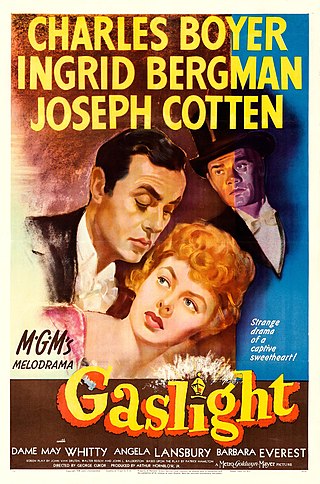
Gaslight is a 1944 American psychological thriller film directed by George Cukor, and starring Charles Boyer, Ingrid Bergman, Joseph Cotten and Angela Lansbury in her film debut. Adapted by John Van Druten, Walter Reisch, and John L. Balderston from Patrick Hamilton's play Gas Light (1938), it follows a young woman whose husband slowly manipulates her into believing that she is descending into insanity.

Regina Marie Kirk, known professionally as Jenna Fischer, is an American actress. She is best known for her role as Pam Beesly on the NBC sitcom The Office (2005–2013), for which she was nominated for the Primetime Emmy Award for Outstanding Supporting Actress in a Comedy Series in 2007; she was also a producer for the show's ninth and final season.

Jamia Suzette "Jayma" Mays is an American actress. She is known for playing Emma Pillsbury in the Fox musical series Glee (2009–2015) and for her starring roles in the films Red Eye (2005), Paul Blart: Mall Cop (2009) and The Smurfs (2011). She is also known for portraying Debbie in the sitcom The Millers (2013–2014) and her recurring role as Charlie Andrews on the NBC sci-fi series Heroes (2006–2010). Mays starred as prosecutor Carol Anne Keane in the NBC sitcom Trial & Error (2017–2018).

The Unchanging Sea is a 1910 American drama film that was directed by D. W. Griffith. A print of the film survives in the Library of Congress film archive.

Husbands in Goa is a 2012 Indian Malayalam comedy film directed by Saji Surendran and written by Krishna Poojapura, starring Jayasurya, Indrajith, Asif Ali, Lal, Rima Kallingal, Bhama, Remya Nambeesan and Praveena.